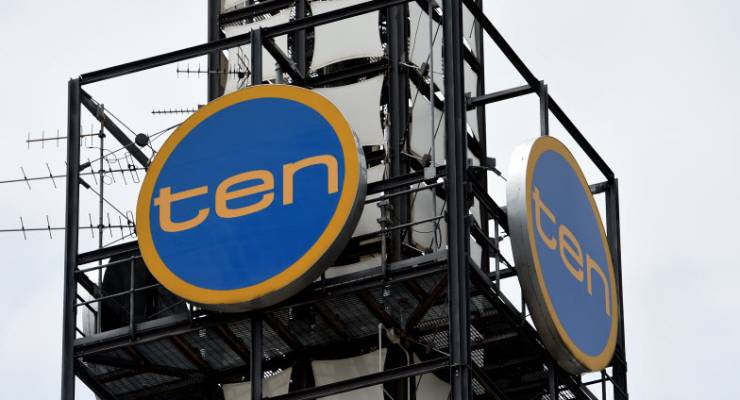
There has been extensive coverage in the Fairfax and News Corp papers this week (especially this feature in The Australian) about the Ten TV network implosion and collapse into administration and perhaps receivership.
Sadly, not much has been disclosed through the ASX announcements platform, which has been poorly serviced by Ten for much of this year.
Administrators KordaMentha went to the Federal Court this week seeking an extension of the deadline for the second creditors’ meeting, but they certainly didn’t have it all their own way.
Both ASIC and Bermuda-based former billionaire Bruce Gordon have been challenging KordaMentha, particularly on disclosure questions and the role they played before being officially appointed on June 14.
For instance, there’s an argument that KordaMentha’s original appointment in February should have been disclosed, although that might have startled the horses and further undermined the share price at the time.
As it turns out, KordaMentha had 51 meetings and generated $1 million worth of fees before being officially appointed as administrators.
There are plenty of issues here for the directors who were representing big shareholders or guarantors — Lachlan Murdoch, Gina Rinehart, Bruce Gordon, Foxtel and, indirectly, James Packer.
For example, Lachlan Murdoch’s key executive (and now senior News Corp Australia executive), Siobhan McKenna, was a Ten director until she resigned unexpectedly and without explanation on March 15. Was she present for some of the meetings with KordaMentha and was she part of a board that decided to bring the firm in as advisers?
If so, why didn’t she push for fuller disclosure or was she rolled by the other directors?
[Ten is in such woeful shape even its own board won’t buy shares]
The same questions can be asked of Bruce Gordon and Gina Rinehart and their representatives on the Ten board, Andrew Lancaster and Andrew Robb. And the same question can be asked of Peter Tonagh, CEO of Foxtel, a 13.8% shareholder in Ten. His presence on the Ten board made sure that Foxtel knew, and the News Corp and Telstra representatives on the Foxtel board knew about KordaMentha’s appointment and why.
Anyone who bought Ten shares after February’s KordaMentha appointment might be feeling a bit miffed at the moment, although we’re yet to see whether the current sales process could salvage some value for shareholders.
Another question raised from the media reports this week is: did James Packer formally withdraw his guarantee to the $200 million revolving credit Ten had with the Commonwealth Bank, and if he did, when did that happen? James Packer, along with Lachlan Murdoch and Bruce Gordon, had provided guarantees for the loan, and were owed $11 million each when Ten went into administration on June 14.
Fairfax Media reports this week mention an exchange of emails last weekend between Bruce Gordon’s lawyer and adviser, John Atanaskovic, and Leon Zwier, lawyer for KordaMentha. According to Fairfax:
“He (Atanaskovic) then questioned why Ten did not tell the market earlier that the third guarantor, Mr Packer’s Consolidated Press Holdings (CPH), had withdrawn its guarantee. According to the Fort Street letter of June 12, there was prior confirmation from CPH it would not provide further guarantees.
“Mark [Korda] mentions two of the shareholder guarantors here, but fails to mention both (i) the formal indication already some weeks earlier … of the unpreparedness of a third of the shareholder guarantors to extend or increase its guarantee, and (ii) the unexplained failure by Ten at the time to disclose this publicly (as at least arguably required pursuant to ASX and statutory continuous disclosure rules).”
That is a fair question.
However, KordaMentha has since disclosed that Packer is back at the table as a guarantor extending a further $30 million in funding through CBA, although he is not part of the Gordon-Murdoch consortium seeking to buy Ten.
The federal government, regulators and Parliament are involved at a range of levels with this extraordinary situation.
The ACCC is currently dealing with a request from the Gordon-Murdoch consortium to be able to bid for Ten; ASIC dealt itself into the game through this week’s Federal Court hearings and has secured the appointment of Peter Gothard from Ferrier Hodgson to oversee the workout process; the government gave Ten a $22 million licence fee windfall; ACMA is assessing whether the current media laws are being breached; the Foreign Investment Review Board is assessing the credentials of offshore bidders; and Parliament is still wrestling with the proposed media ownership laws.
Meanwhile, Ten is continuing to only dribble out announcements to the ASX.
There was no mention of the ASIC intervention in this latest ASX announcement, just the extension of the deadline for the second creditors’ meeting until November 20.
If all this stuff happened in open court and is being widely reported, surely the ASX could be provided with a transcript of proceedings, relevant affidavits and the orders of the judge so that all of Ten’s 17,000 shareholders are fully informed about developments.
Just because a company falls into administrators or receivership doesn’t mean the principles of comprehensive and timely public disclosure to all should not still be observed, especially when there are so many tricky governance issues at play.
*Stephen Mayne is a director of the Australian Shareholders’ Association








Crikey is committed to hosting lively discussions. Help us keep the conversation useful, interesting and welcoming. We aim to publish comments quickly in the interest of promoting robust conversation, but we’re a small team and we deploy filters to protect against legal risk. Occasionally your comment may be held up while we review, but we’re working as fast as we can to keep the conversation rolling.
The Crikey comment section is members-only content. Please subscribe to leave a comment.
The Crikey comment section is members-only content. Please login to leave a comment.